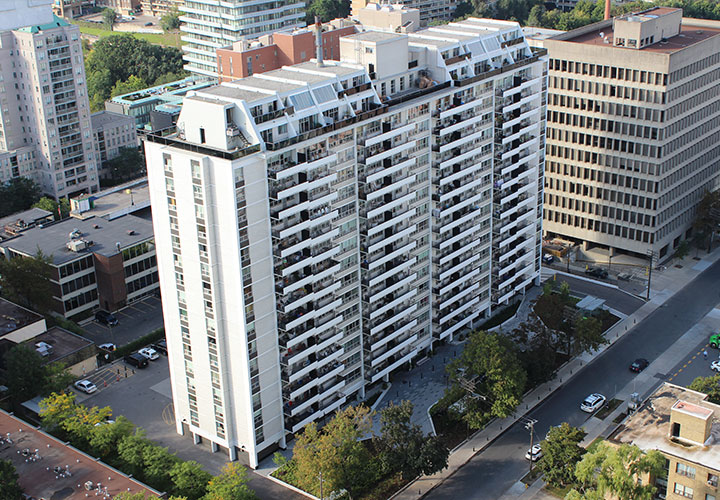May 29, 2017
New Requirements for Toronto Apartment Buildings

As of July 1, 2017, a new set of requirements will be included in the Toronto Municipal Code. These will apply to apartment buildings with three or more storeys and ten or more units. This is not applicable to co-operative housing, long-term care facilities or licensed retirement homes. It is also not applicable to condominiums, even those that contain many investor-owned and rented units.
Highlights of new requirements include:
- Apartment owner must register each building annually and pay a fee. Annual registration must include information about the building owners and operators, a description of the security features, a description of sub-metering features, and other information that may be required by the Executive Director, Municipal Licensing and Standards.
- Apartment owner must put in place a tenant request tracking system and meet requirements with respect to responding to requests (within 1 day for urgent requests and within 7 days for non-urgent requests). Requests are urgent if they are related to the discontinuance of the following vital services: fuel, electricity, gas, heat, hot or cold water or the breach of building security or suite security, or breach of building envelope.
- Apartment owner must post a notice board to communicate with owners. The board must tell them about service disruptions, upcoming capital work, cleaning plans, emergency contacts, the location of the nearest cool space, and copies of work orders and Municipal Licensing and Standards audits.
- Pest management plans must be in place including a restriction that an apartment cannot be rented if pests are known to be present in the unit.
- Waste management plans must be in place including information about how required diversion will be completed.
- Cleaning plan must be in place, committing to routine inspections and cleaning, including how emergency cleaning needs will be met.
- Apartment owner must have a state-of-good repair capital plan in place, and must make this available to tenants and prospective tenants upon request. The requirements include very little information about this plan other than that it must include a list of “capital elements” and the years when they are planned for replacement or upgrading. The term “capital plan” infers that budgets will be provided, but this is not specifically indicated, so until clarification is provided, we assume a one-page summary of elements and repair timing will be sufficient.
- The building owner must keep, for at least 24 months, a record of activities undertaken to comply with these new requirements (tenant request log, cleaning log, pest control log etc.).
- A unit cannot be rented if a work order is open on the unit.
- The City can do inspections, pre-audits, audits and follow-up and the costs of these services will be charged to the building owner per a defined schedule of rates (except for social housing providers, who do not have to pay).
Anyone who commits an offence under the new chapter requirements is guilty of an offence and can be fined up to $100,000.
The City may implement a tenant engagement program to make tenants aware of their rights related to these new requirements.
